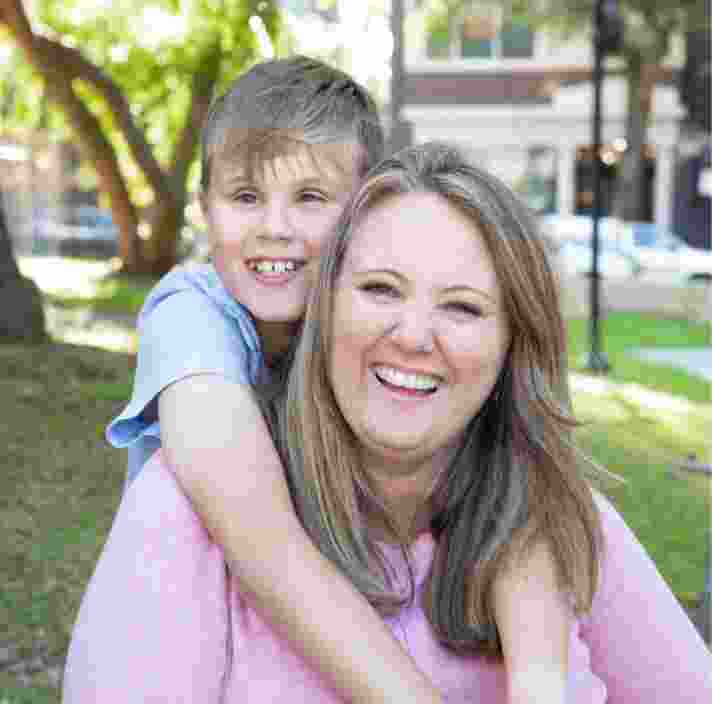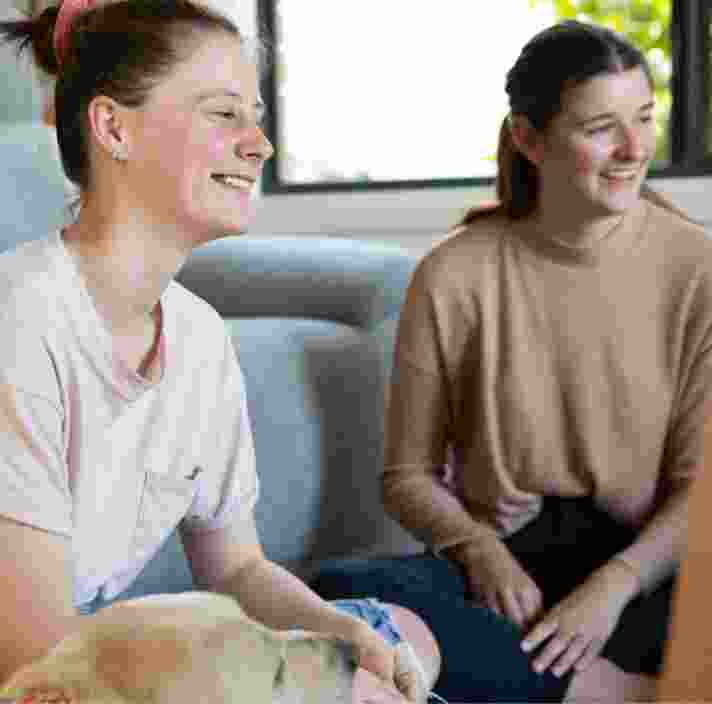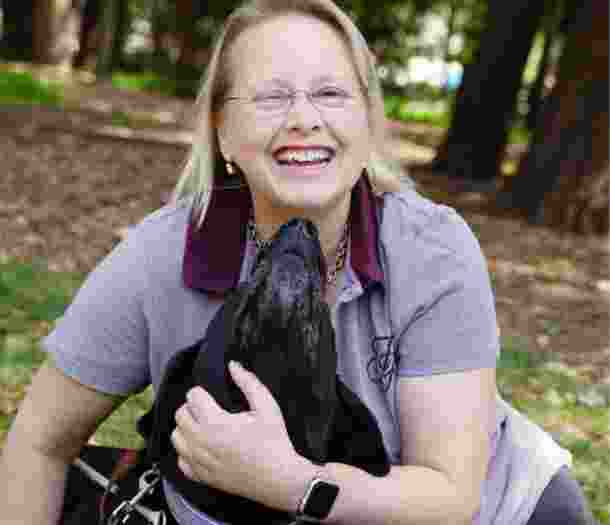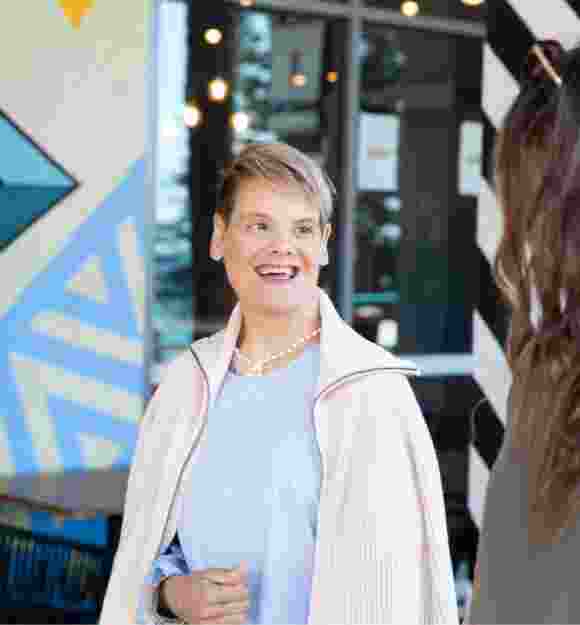On this page:
Tailored skills for independence
How your loved one can achieve their goals.
Experiencing a change in vision is challenging, regardless of age or circumstance. As a supporting parent, partner, or primary carer, it’s natural to feel uncertain. Whether the change happened suddenly or over time, there are always questions. Will my child make friends at school and fulfil their potential? Is my partner going to be able to work and live our active lifestyle? Can mum or dad stay independent at home and enjoy their favourite activities?
Although the answers to these questions are unique depending on your loved one’s situation, our services are similarly designed on a case-by-case basis to support personal goals. Whatever your child, partner, parent or friend hopes to achieve – we support each person to acquire new skills, establish or maintain independence, while enjoying a high quality of life.
What kind of support is available?
Establish or maintain independence.
Every support service at Guide Dogs Victoria is tailored to each person’s individual goals. Here are some examples of the types of skills other people commonly achieve:
- Navigating and exploring the world independently, including catching public transport, moving through busy environments, and travelling to uni, work or school. These skills can be taught through Orientation and Mobility services.
- Children can learn to explore their day-to-day world safely and independently, play and get active, and confidently interact with others. These skills can be taught through Children’s Mobility Services.
- Independence around the home, including cooking and cleaning, gardening, showering and bathing, grocery shopping and using telephones. These skills can be learned through Occupational Therapy.
- Through our Children’s Mobility Camp program, we teach Orientation and Mobility skills in a group setting where children can make friends and engage socially with their peers. Adults have the same opportunities to meet similar people and make friends through Peer Support Programs.
How to access funding
Financial assistance options.
Depending on age and circumstances, financial assistance may be available to access our supports. This helps cover the costs of support or training programs.
Regardless of financial situation or whether your loved one is eligible for funding assistance, we work hard to give all people with low vision or blindness access to our services. Be reassured, we will always provide support.

Create a more supportive environment
Tips to provide immediate support at home.
If your loved one is still thinking about connecting with Guide Dogs Victoria – or they are hesitant to get in touch with a support provider – there are some easy steps you can take to provide immediate support at home, especially if they have experienced a recent change in vision. Some examples include:
- Ensure doors are either fully closed or fully open: never leave them ajar.
- Advise your loved one of any changes to furniture placement and the position of objects like vases or ornaments.
- Remove any objects that may become a tripping hazard, like power cables, cords, and rugs.
- Always close cupboard doors and bench drawers.
- If an environment is unfamiliar, provide a clear verbal description – often referred to as a ‘verbal map’ of the room layout, including the location of specific objects.
Give us a call on 1800 804 805 for more information on how to provide a supportive environment for your loved one.

Get in contact or refer for support
Start the conversation around accessing support.
If you’re looking to access support for someone you know or currently care for, we welcome referrals from parents, friends, family members, and a wide range of health professionals.
A referral is just like initiating a casual conversation; there is no commitment or obligation involved on your – or your loved one’s – behalf.
- Phone: 1800 804 805
- Email: referrals@guidedogsvictoria.com.au
Request a service
Take the first step towards greater independence
Ready to continue?
Seems like you have filled this form earlier. Let’s pick up where you left off.

